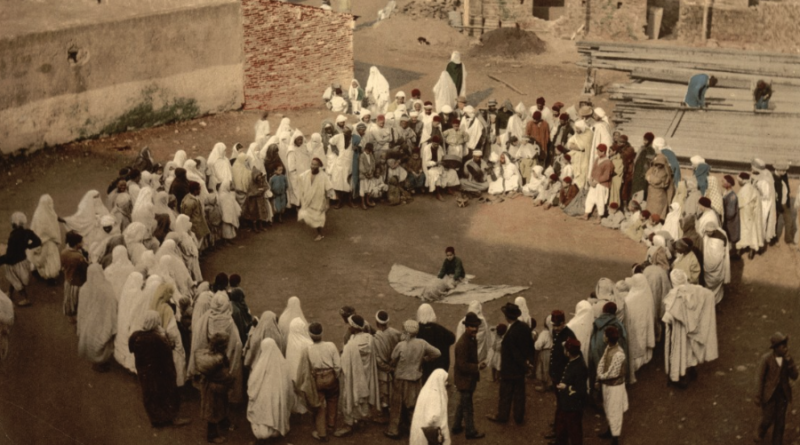Amazigh Culture: Ancient Rejection of the Death Penalty
The trend to abolish the death penalty took off at the end of the World War II. However many people don’t know that this trend came centuries later than the customs adopted by the Amazigh community rejecting the death penalty.
When 16 countries abolished the death penalty in 1977 and joined it in 2009, another 93 countries, including 10 countries abolished it with the possibility of introducing it in certain circumstances, the Amazigh communities scattered in a number of countries were re-documenting their historical heritage and Customs, and this highlighted an old Amazigh tradition of staying away from capital punishments.
History of the death penalty
The history of the death penalty stretches back thousands of years, with its roots found in ancient civilizations. Some of the earliest recorded instances of capital punishment can be traced to ancient Mesopotamia, where the Code of Hammurabi, dating back to 1750 BCE, codified various crimes and their corresponding punishments, including death. Similarly, ancient Egypt, Greece, and Rome employed the death penalty as a means of punishment for a wide range of offenses, including murder, treason, and religious crimes.
Throughout the Middle Ages, Europe saw an increase in the use of capital punishment, with methods such as beheading, hanging, and burning at the stake being common. The practice was often carried out publicly as a deterrent, with its severity varying depending on the region and prevailing legal systems.
Earliest recorded instances of capital punishment can be traced to ancient Mesopotamia, where the Code of Hammurabi, dating back to 1750 BCE
During the Enlightenment period, the philosophical movement advocated for human rights and individual liberties, leading to a shift in attitudes towards the death penalty. Influential thinkers like Cesare Beccaria argued against capital punishment, asserting that it was not only ineffective as a deterrent but also a form of cruel and inhumane punishment. The abolitionist movement gained traction in the 18th and 19th centuries, prompting several countries to restrict or completely abolish the death penalty.
The first nation to abolish capital punishment for all crimes was the Grand Duchy of Tuscany in 1786, followed by countries such as Venezuela, Portugal, and the Netherlands. Over time, the movement spread, and today, the majority of countries have either abolished the death penalty or impose a moratorium on its use. However, opinions on the death penalty remain divided, with some countries still practicing it, often as a response to serious crimes or as a part of their legal systems.
Rejection of the death penalty in Amazigh culture
Amazigh customes and adopted legislation does not contain any provision related to the practice of physical violence or the execution of retribution that leads to depriving a person of one of his organs or even losing his life. However, the Amazigh”adopted several methods and penalties for any crime committed, but without reproducing the same act. The punishment came through the adoption of other decisions such as: exile outside the tribe or the calculation of material fines, which vary according to the nature of the crime committed,” and continued that “the person who commits the worst act, which is murder, whatever the motives, his final sentence will be exile from the tribe and therefore he will feel shame all his life.
This tradition is known the “izrafan custom” which is the law issued by the group.
The former historian of the kingdom of Morocco, Hassan Aourid, said that the Amazigh communities “did not know in their sentences the death penalty”. “The maximum criminal punishment recorded by most Amazigh communities is exile and deportation outside the tribe, the impact of which is most painful for the Amazigh who cannot live far from his surroundings,” he added in an interview to the online magazine Maghreb voices.
The maximum criminal punishment recorded by most Amazigh communities is exile.
Hassan Aourid
Aourid stressed that this punishment was inspired by ancient Greek traditions and customs, while he considered retribution “a punishment derived from the code of Hammurabi and passed on to the monotheistic religions later influenced by the ancient systems in Babylon”.
The global movement to abolish the death penalty gained momentum after World War II, but few are aware that the Amazigh community in North Africa had long rejected this form of punishment. While many countries were only beginning to consider abolishing the death penalty in the late 20th century, the Amazigh people were already documenting their historical heritage, which emphasized alternative methods of justice.
This article explores the Amazigh customs and legislation that eschew physical violence and execution, shedding light on a unique approach to punishment in North Africa.
Amazigh Customs and Alternative Penalties
The Amazigh people, the natives of North Africa, have long upheld customs and traditions that prioritize non-violence and seek to avoid depriving individuals of their lives.
Instead of resorting to retribution through physical harm, the Amazigh community developed alternative methods to address crimes committed within their tribes. These methods include exile outside the tribe or the imposition of material fines based on the severity of the offense.
Alternative methods to punish crimes include exile outside the tribe or the imposition of material fines based on the severity of the offense.
One of the key aspects of Amazigh justice is the “izrafan custom,” which represents the group’s legal framework. Under this custom, the most serious crime one can commit, such as murder, results in exile from the tribe.
This punishment carries a deep sense of shame, as individuals are forced to live away from their familiar surroundings, emphasizing the psychological impact rather than resorting to taking their lives.
A Historical Perspective
According to Hassan Aourid, a former historian of the kingdom of Morocco, the Amazigh communities never incorporated the death penalty into their sentencing practices.
Aourid explains that exile and deportation outside the tribe were the most severe punishments recorded within Amazigh society, reflecting the Amazigh people’s deep-rooted belief in non-violence and their aversion to capital punishment.
For the Amazigh, exile was deemed the harshest penalty as it disconnected individuals from their tribe and surroundings, significantly impacting their social and emotional well-being.
Aourid suggests that the Amazigh approach to justice, particularly the rejection of the death penalty, was inspired by ancient Greek traditions and customs.



